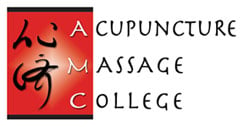Female veterans of the Iraq and Afghanistan wars are less likely to complain about painful health conditions than male veterans, according to a new study.
Findings of the study of more than 91,000 veterans indicate that 43 percent of veterans reported some type of health complaint over one year. Of those, 44 percent of men reported experiencing pain, compared with 38 percent of women. Of those evaluated for persistent pain, 21 percent of men reported symptoms compared with 18 percent of women.
Study data contrasts with painful health conditions experienced among the general population, where women often have higher rates of acute and chronic pain disorders and ailments. The findings appear in the journal Pain Medicine, with research led by Dr. Sally Haskell of the VA Connecticut Healthcare System in West Haven.
While Haskell and her researchers cannot identify why the percentages differ from those in the general population, they believe that combat exposure could be a factor. Higher percentage rates of pain conditions among male veterans may be due to more men serving in a war zone than women, with more of them experiencing injury or post-traumatic stress disorder (PTSD).
"A better understanding of the prevalence of pain, as well as sex-specific variations in the experience and treatment of pain, is important for policy makers and providers who seek to improve identification and management of diverse pain disorders,” says Haskell.
According to the National Center for PTSD (US Department of Veterans Affairs), about 30 percent of the men and women who have spent time in recent war zones experience combat-induced PTSD.
Classified as an anxiety disorder, PTSD can result from the experience or witnessing of traumatic or life-threatening events such as terrorist attack, violent crime, torture, genocide, natural disaster, and military combat.
Symptom clusters of PTSD include re-experiencing of the event (intrusive memories, flashbacks), emotional numbing and/or behavioral avoidance of trauma-related stimuli and hyper-arousal (difficulty sleeping, irritability, being easily startled).
Acupuncture can be an effective addition to treatment regimens for PTSD, alleviating symptoms including insomnia, stress, anxiety, and depression. It can also reduce body pain without medication side effects. Use of complementary therapies (acupuncture, massage and herbal supplements) is widespread among active military veterans.
Acupuncture & Massage College’s Community Clinic offers holistic therapies for the treatment of PTSD and many other stress-related conditions and ailments. To schedule an appointment at the Clinic call (305) 595-9500. For information about AMC’s Oriental Medicine and Massage Therapy programs ask for Joe Calareso, Admissions Director.
Female Veterans Have Fewer Health Complaints Than Male Veterans
Posted January 04, 2010
by Acupuncture & Massage College
& filed under Acupuncture and Massage College | Miami, FL

 (305) 595-9500
(305) 595-9500






